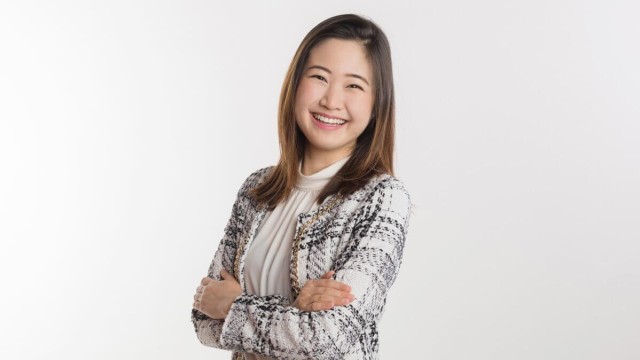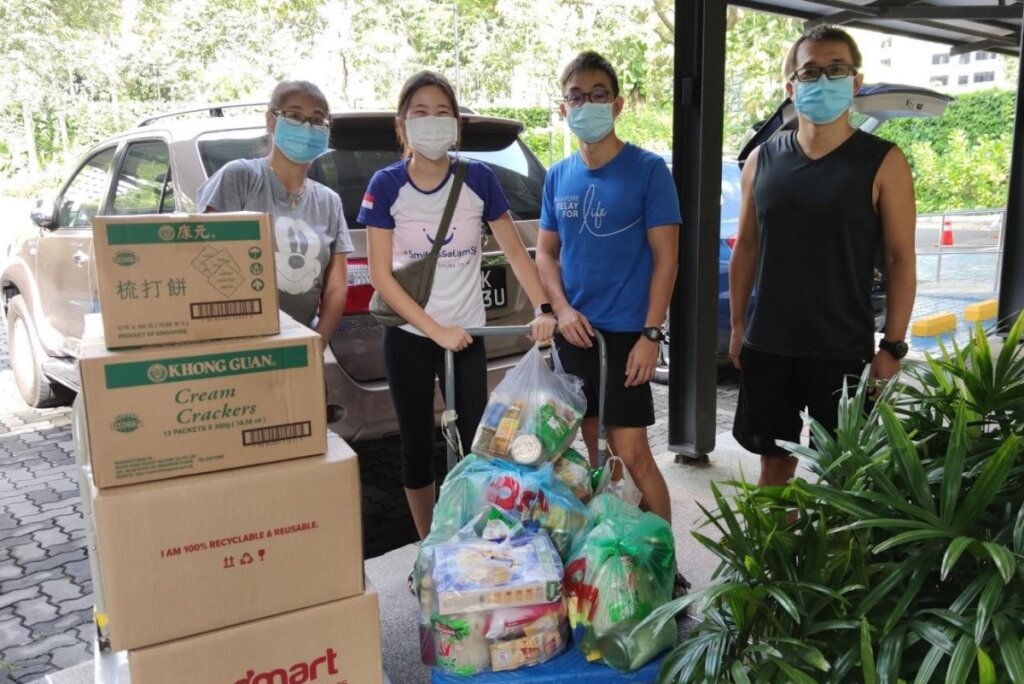
An Accountancy Alumna’s Journey To Reduce Inequality One Step at a Time
SMU Accountancy alumna Sheriel Chia felt disconcerted when she noticed the rich and poor divide in Myanmar during a work stint. This propelled her to help the poor in Singapore, where she now works with three Family Service Centres in Bukit Merah. She shares how she initiated a grocery distribution programme in the community and what motivates her to put in the work despite her busy schedule.
As inflation sweeps over the globe, the age-old divide between the haves and the have-nots has been made even more apparent. With higher inflation known to hit out at people in developing economies even harder, SMU Accountancy alumna Sheriel Chia was disconcerted when she first noticed the divide while in Myanmar on a work stint.
Driven by her passion to make a difference to others in need, Sheriel was determined to uncover poverty in Singapore upon her return to the lion city.
Today, the Senior Consultant with Finalix Business Consulting chooses to spend her weekends carting groceries around Bukit Merah in casual shorts and t-shirts. Sheriel shares the story of her journey in starting a food distribution drive in the very neighborhood she lives in.

Q:
Hi Sheriel, please tell us more about the current community service programme you are running in your neighbourhood.
A:
We work with three Family Service Centres (“FSC”) in the Bukit Merah area to provide grocery ration packs to households in need. These FSCs engage the help of case workers to identify the number of households facing food security issues. With this information, we prepare the requested number of ration packs. Through this model, we hope to be more targeted in our help.
We also work with wet market stall holders by collecting inventory they might want to donate. In turn, we support them by buying more groceries from them to make up our ration packs.
Q:
What inspired you to initiate this programme in Bukit Merah?
A:
If I were to really trace back to what planted this seed, I would say that it started from my time in Myanmar. When I was living and working there, the rich and poor divide was very apparent, and the inequality was rather obvious. When one thinks of our national structural icons in Singapore, many demonstrations of collective wealth is evident. This made me ponder – what was Singapore’s inequality level like, relative to Myanmar’s? I realised that Singapore had higher income inequality, which may not be extremely obvious on the surface. So where did poverty reside in Singapore then?
This led me down the road to explore inequality in Singapore by reading up, walking around rental blocks and volunteering at ground-up initiatives. I first started volunteering for a pop-up grocery initiative in Bedok with SmileSalamSg (SSSG). After moving to Bukit Merah, I decided to start my own initiative with the help and support of SSSG. More than a year later, here we are!
Q:
Looking back, how did your experience at SMU set you on this unconventional pathway?
A:
The diverse and broad curriculum in SMU showed me that I should not be confined to only studying topics of my chosen degree. Sometimes, we were even forced to do modules outside of our degrees. Opportunities to go abroad, take on case competitions, volunteer and participate in co-curricular activities were plentiful. This challenged me to be intellectually curious beyond formal structures and the classroom. We were free and even encouraged to learn and explore topics outside our comfort zone. I learnt to be unafraid of being the most ignorant person in the room, because I knew that that was only temporary as long as I let my intellectual curiosity take the lead.
Q:
What motivated you to run these programmes for the financially disadvantaged families, despite your busy work schedule?
A:
I have my husband, Shu Ren, to thank for being with me on this journey. It is meaningful for us as a couple to experience, grow and learn new things together. That alone is a huge motivation.
In addition to that, I think it is easy to dismiss doing a lot of things with the convenient reason of leading busy lives and having other priorities. But the fact is, we are always going to be busy. If I’m honest with myself, I am already spending a disproportionate amount of time serving myself – through a salaried job, self-improvement activities and even general rest and relaxation. I think there is no good excuse to avoid making time to help others, because it is simply a choice to be made.
At the end – by which I do mean literally when death takes place – I want to look back at my life and know that somehow, I made things a little bit better for the lives I’ve crossed. That would bring me joy and peace.
Q:
Lastly, can you share with us on the upcoming plans of your grocery distribution programme?
A:
To be honest, I do not have an answer for where the programme in going to take us in the long term. I started this at the height of the pandemic, when working-from-home was the default job arrangement, and the pace was slower in general. The difficult truth is that it becomes harder to continue our efforts in the same way in these endemic times.
That said, we may not necessarily have to do things the same way to achieve the same objective of helping the needy. Unlike my younger, less impatient self, I am more trusting in the long but needed process of discovery and experimentation. My hope is that I can continue to find ways to do good and be part of the solution of reducing inequality. I have confidence that I will find a sustainable and impactful way to do so. And if I falter, so be it. Having found my “Why”, it is much easier to learn the “What”.




